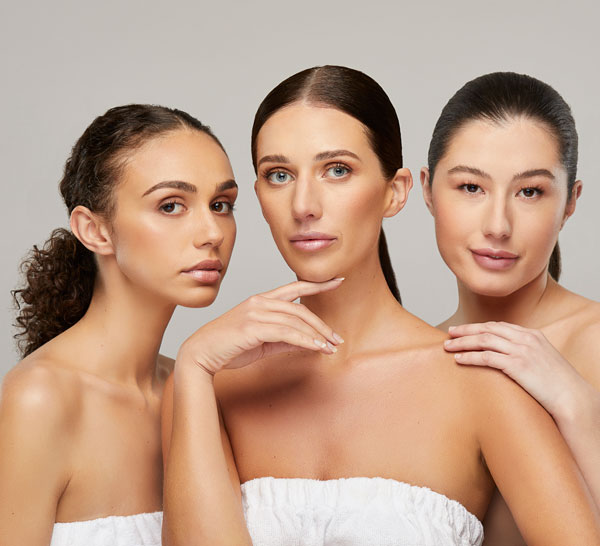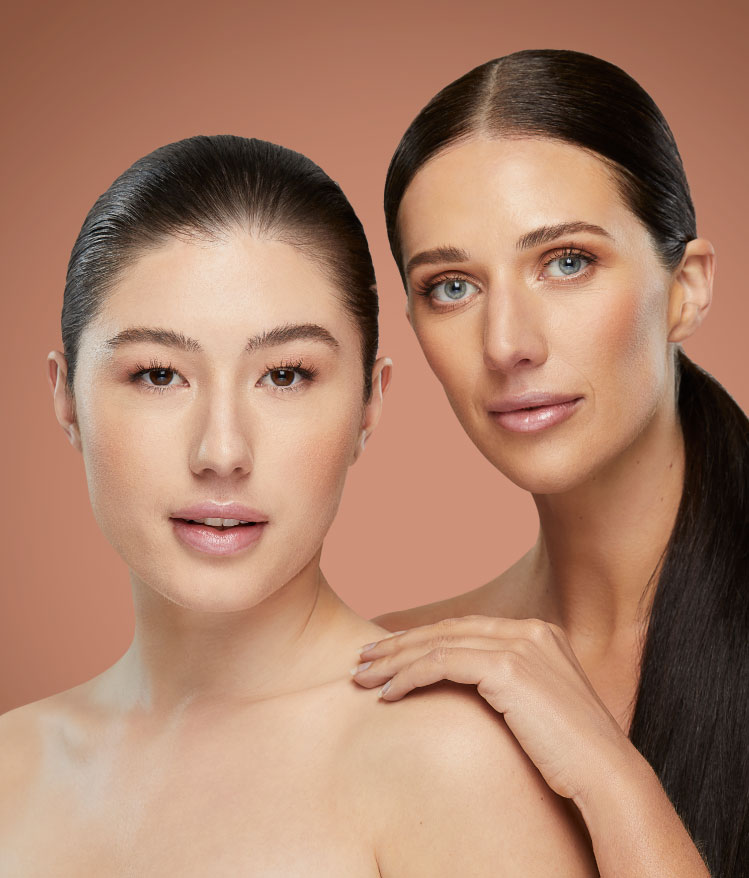Volume loss
There are several reasons that individuals can experience facial volume loss.
A loss of fat can occur due to the natural ageing process, weight loss, shift in hormone levels, injury, as well as certain medical conditions.
VOLUME LOSS AND AGEING
When understanding facial volume loss in relation to the natural ageing process, we are looking at a combination of loss of collagen, facial fat loss and skeletal ageing as the main contributors.
Elastin and collagen fibres are what gives the skin suppleness and strength and the number of fibres we can produce decreases as we age.
In addition to your skin, ageing exists at every layer of the facial structure:
Fat Pads:
Below the skin’s surface are pouches of fat that help to provide volume, contours and fullness of the face. When we are younger our facial fat is evenly distributed around the eyes, cheeks, forehead, mouth and temples. However, as we age this begins to shift downward and diminish, causing hollowness under the eyes, sunken cheeks or thinning lips.
Over time facial fat can gather in areas that were once taut such as the lower jaw.
Muscles:
Beneath our fat-pads are our facial muscles that are repeatedly used to eat, move and express emotion. A loss of facial fat combined with gravity and repetitive muscle activity can lead to deep wrinkles. Facial muscles get weaker over time hence the loss of muscle tone can contribute to a less defined profile.

Bones:
Our bones provide the foundation and support for our muscles, fat-pads and skin and as we age, our bones lose density and start to shrink. As a result, this changes the dimension, contour and unique structure of the face.
Below are some of the areas you may experience volume loss.

• Under eyes

• Jawline

• Cheek

• Lips

• Hands

MANAGING VOLUME LOSS
When it comes to managing volume loss, it’s important to understand the layers of the skin.
Excessive amounts of sun exposure can cause damage to our skin which speeds up the collagen and elastin breakdown. These elements along with our fatty layer are important for skin structure so when compromised can influence volume loss. Avoid excessive sun exposure and always wear SPF to prevent sun damage to the skin.
Ensure you have a balanced diet. This not only provides your skin with nutrient rich benefits but also ensures you maintain a healthy weight, impacting how the face ages.
There are also several cosmetic treatments that can help assist in managing volume loss. It is essential to consult with your healthcare professional before undertaking any cosmetic treatments to ensure the treatment is suitable and tailored to your individual needs.
Some volume loss treatments may include:
• Dermal filler • Collagen stimulating fillers • Surgical treatments • Thread lift

